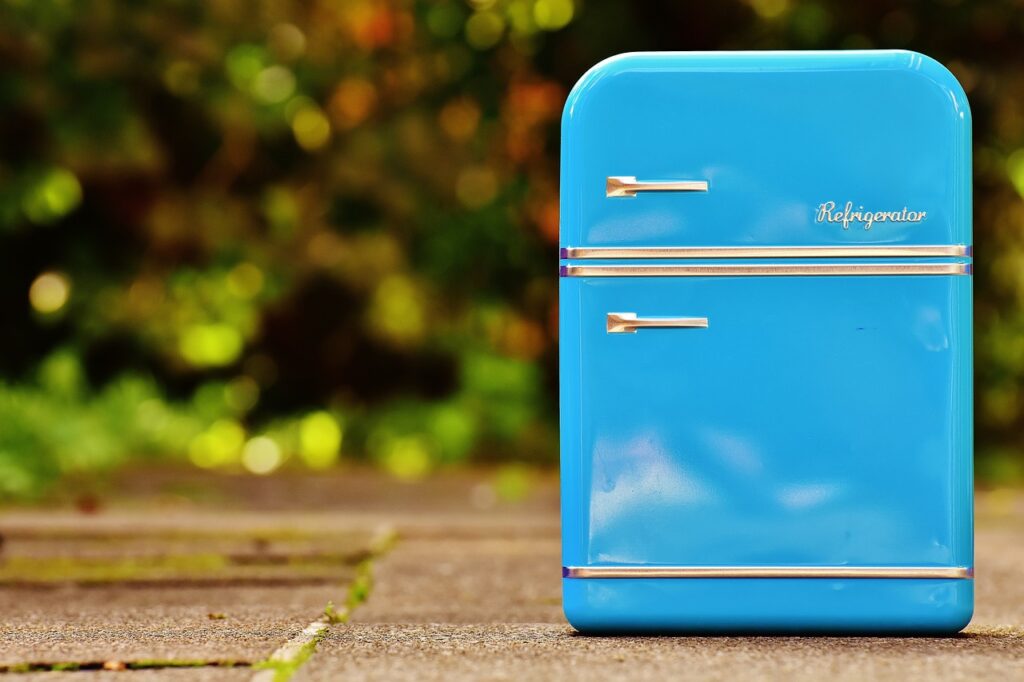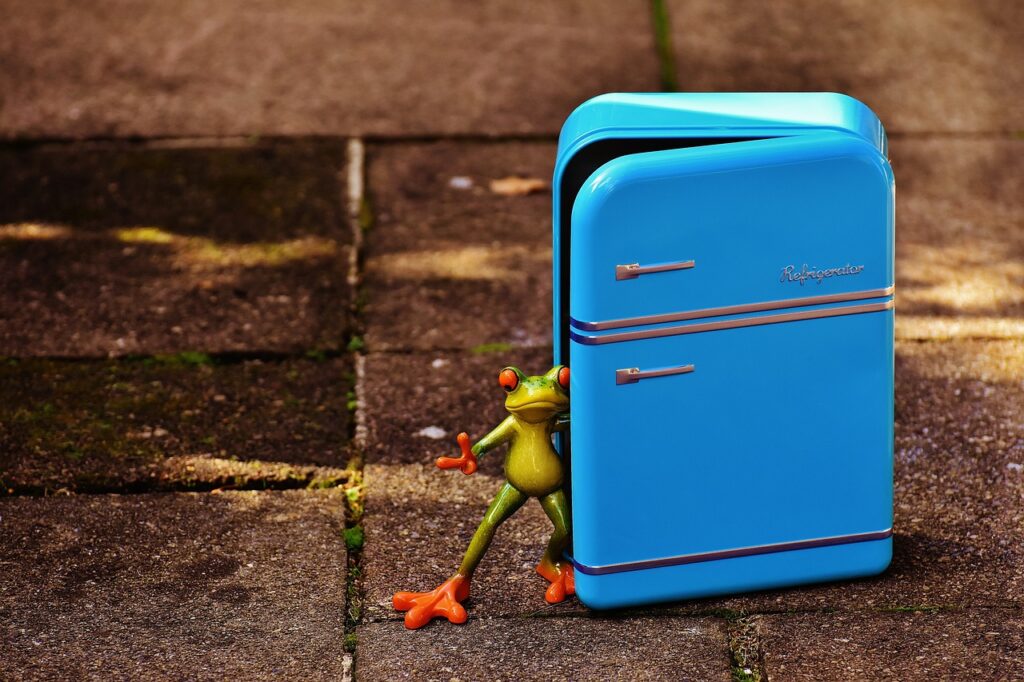Is there anything more annoying than trying to relax in your kitchen, only to be interrupted by the mysterious knocking noise coming from your refrigerator? It’s as if your trusty appliance has developed a secret code to communicate with you, but you can’t quite decipher its message.
There are a few culprits you should investigate to pinpoint the root of the knocking noise – the evaporator fan, the condenser fan, and the compressor. These components are the usual suspects when it comes to such annoyances, and checking them can help you get to the bottom of the issue. In this article, we’ll uncover the five likely reasons why your refrigerator is making a knocking noise.
First things First: Check the external Inference
Before diving into the internal workings of your refrigerator, it’s wise to rule out external factors causing the knocking noise. Ensure that nothing inside the fridge knocks against the walls when the compressor runs.
You can simply rearrange items or secure loose ones to eliminate this possibility. Additionally, take a moment to ensure that your refrigerator stands level on the kitchen floor. An uneven surface can sometimes make your fridge wobbling, leading to a knocking sound.
Now let’s embark on a journey to discover the five reasons why your refrigerator is making a knocking noise;
1. Loose or Faulty Compressor Mounts
The compressor is the heart of your refrigerator, responsible for circulating the refrigerant and maintaining the optimal temperature. Over time, the mounts that secure the compressor can become loose due to vibrations and general wear and tear. As a result, the compressor may knock against its casing or other components, creating that unwanted noise. If left unaddressed, loose mounts can lead to further damage, so acting promptly is essential.
2. Faulty Condenser Fan
The condenser fan plays a crucial role in dissipating heat from the refrigerator’s coils. If the fan becomes faulty or gets obstructed by debris, it may start producing a knocking noise. The irregular rotation of the fan blades or the collision with foreign objects can be the culprits.
Regularly cleaning the fan and surroundings can prevent this issue and keep your refrigerator humming smoothly.
3. Uneven Refrigerator Placement
Sometimes, the knocking noise might be due to the refrigerator’s placement. If the unit is not level and stable on the floor, it can rock or sway slightly whenever the compressor or condenser fan turns on. This movement may result in knocking against the floor or nearby objects. Ensure your refrigerator sits flat and adjust its levelling feet if necessary to avoid this annoyance.
4. Damaged Water Inlet Valve
Many modern refrigerators are equipped with a water dispenser and ice maker, which require a water inlet valve to function correctly. If the valve gets damaged or clogged, it can cause water hammering or knocking sounds when the water flow is interrupted. Regularly inspecting and maintaining the water inlet valve can prevent this issue and ensure a steady supply of ice-cold water.
5. Expansion and Contraction of Refrigerant Lines
As the refrigerator operates, the refrigerant inside the coils undergoes cycles of expansion and contraction. This natural process can cause the refrigerant lines to expand or contract, leading to knocking noises. While this phenomenon is relatively common, excessive or abrupt noises may indicate an issue with the refrigerant system. It’s best to consult a professional technician for a thorough inspection in such cases.
Essential Steps to Take

Proper maintenance can go a long way in ensuring your refrigerator operates smoothly and quietly.
Here are some additional tips to help maintain your refrigerator and prevent any unwanted noise:
1. Regular Cleaning
Regularly clean both the interior and exterior of your refrigerator. R تمemove any spills, crumbs, or debris from shelves, drawers, and seals. Clean the condenser coils at the back or bottom of the fridge at least twice yearly to ensure efficient cooling and prevent the condenser fan from overworking.
2. Organize Contents
Keep your refrigerator organized to prevent items from knocking into each other. Avoid overcrowding the shelves, as this can lead to items bumping against the walls when you open or close the door.
3. Check Door Seal
Ensure the door seals are tight and free from debris or damage. A worn-out or loose seal can cause the fridge to work harder and generate more noise. Test the seal by closing the door on a dollar bill; if you can easily pull it out, it’s time to replace the gasket.
4. Maintain Proper Temperature
Set the refrigerator and freezer to the recommended temperature levels. An excessively cold environment can strain the compressor, increasing noise levels.
5. Avoid Overloading
Refrain from overloading the refrigerator with too many items, especially in the freezer. Proper air circulation is crucial for efficient cooling and can help prevent knocking sounds caused by air blockage.
6. Be Gentle with the Door
Avoid slamming the refrigerator doors shut, as this can lead to misalignment and cause an unnecessary knocking noise. Gently close the doors to keep the components in their proper positions.
7. Keep the Fridge Level
Ensure your refrigerator is level on the floor to prevent rocking or vibrating during operation. Use a spirit level to check and adjust the levelling feet as needed.
8. Check Water Supply
Inspect the water supply line regularly if your refrigerator has a water dispenser or ice maker. Ensure it’s properly connected and has no kinks or leaks that could cause water hammering noises.
9. Schedule Professional Maintenance
Consider scheduling regular maintenance with a professional technician. They can inspect the various components, perform necessary cleaning and adjustments, and identify potential issues before they escalate.
The Bottom Line
Your refrigerator might be trying to tell you something with that knocking noise, and it’s essential not to ignore it. Identifying the root cause of the noise can help you prevent further damage and extend the life of your appliance.
These five reasons could be behind the knocking noise, from loose compressor mounts to faulty condenser fans and damaged water inlet valves. Regular maintenance, timely repairs, and professional assistance can keep your refrigerator running silently and efficiently, ensuring you enjoy the peace and quiet you deserve in your kitchen.
